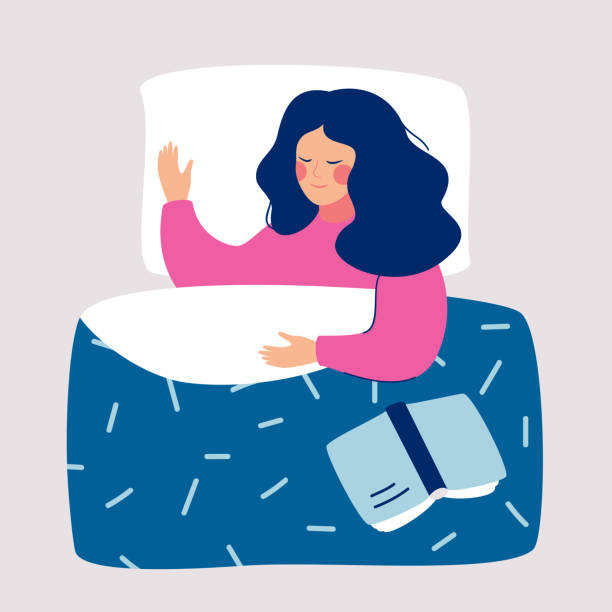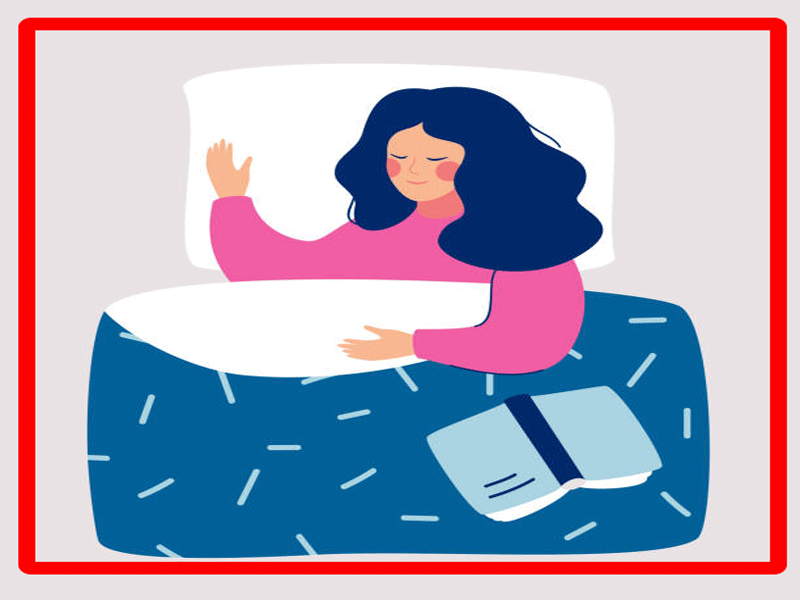In general, each person should rest and sleep for 7 to 8 useful hours during the day; When the time and amount of sleep at night is disturbed, the sleep disorder and its complications will come to life. Sleep disorders are conditions that affect the ability to sleep well on a regular basis. These disorders are becoming more and more common due to a health problem or due to excessive stress. It is normal for the oven to have problems sleeping during some nights. ,but it is not normal to wake up regularly at night or feel drowsy during the day.
Sleep disorders are oversleeping or oversleeping, skipping sleep, not going to the deep and difficult sleep stage. Depending on the type of sleep disorder, people may find it difficult to fall asleep and feel very tired during the day. Lack of sleep can negatively affect energy, mood, concentration and overall health.
Another cause of sleep disorders is stress and anxiety. Usually stress and anxiety have a negative and bad effect on the sleep process and make it difficult to sleep. Nightmares of seeing, talking or walking in sleep are among the negative effects of stress on the sleep process.

Cause of sleep disorders
One of the most important causes of sleep disorders is depression and stress. If this depression and stress is not controlled and treated, it can be an important factor for nightmares, talking and walking in sleep, children’s bedwetting due to fear and anxiety. This problem can occur in both adults and children, and its symptoms and complications affect different age groups. Here are the main and main causes of sleep disorders:
Allergies and respiratory problems
One of the causes of sleep disorders is allergies and respiratory problems. Different types of allergies, colds and upper respiratory infections can make it difficult to breathe at night. Therefore, inability to breathe in any way (through the nose) can also cause sleep problems and loss of quality.
Frequent nocturnal urination
Another cause of sleep disorders, especially in children, is frequent urination. This problem can occur for various reasons such as excessive fluid intake, hormonal imbalance, fear and stress and even phobias of darkness and.. If you have frequent bleeding, you must see a doctor.
Chronic pain and inflammation of the joints
If a person has pain and inflammation in a part of his body, such as toothache or osteoarthritis, this pain can make it difficult for him to sleep. This is a serious sign; The most common chronic nocturnal pain is osteoarthritis, chronic fatigue syndrome, fibromyalgia (chronic musculoskeletal pain syndrome), intestinal inflammation, headache and back pain that can cause nighttime sleep disturbances.
Stress and anxiety
Another cause of sleep disorders is stress and anxiety. Usually stress and anxiety have a negative and bad effect on the sleep process and make it difficult to sleep. Nightmares of seeing, talking or walking in sleep are among the negative effects of stress on the sleep process.
Symptoms of sleep disorders
Signs and symptoms of sleep disorders vary from person to person depending on the type of disorder. Symptoms may also change if the sleep disorder is caused by an illness or other underlying cause. But the general symptoms of sleep disorders are:
- Difficulty falling asleep or staying asleep
- Weakness and fatigue during the day
- Strong desire to nap during the day
- Moodiness, irritability and anxiety
- Distraction and lack of concentration
- Depression
- Weight loss or gain
How to treat sleep disorders
Treatment for sleep disorders can vary depending on the type and underlying cause. To treat sleep disorders, as mentioned, it is better to see a doctor and the doctor will diagnose the disease by examining and performing tests. In addition to the doctor to treat this problem can change lifestyle.
Medical treatment
As mentioned, one way to treat this problem is medical treatment. In this method, the doctor can prescribe sleeping pills; Melatonin supplements; Allergy or cold medicine; Medications to treat the underlying health problems. Sometimes he uses a respirator or surgery for sleep apnea, and he also uses a dental protector for gritted teeth.
Lifestyle changes
As mentioned, another treatment for sleep disorders is lifestyle changes. Making lifestyle changes can greatly improve the quality of your sleep; Especially when done with medical treatments. Some of the changes that should be considered are:
- Include more vegetables and fish in your diet and reduce your sugar intake
- Have a regular sleep schedule and stick to it.
- Reduce your anxiety and stress by exercising.
- Drink less fluids and water before going to bed so that you do not have to wake up because of urine.
- Cut down on caffeine, especially in the late afternoon or evening.
- Also reduce tobacco and alcohol consumption
- Eat smaller low-carb meals before bed.
Going to bed and waking up at a certain time each day can also significantly improve the quality of your sleep. While you may be tempted to wake up later on the weekends, this can make it harder for you to wake up and fall asleep during the work week.


